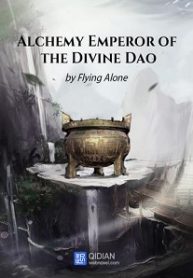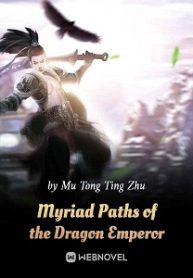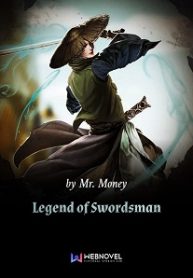The Rise Of Australasia - Chapter 132
Chapter 132: Chapter 132: Flight Plan (Part 2)
рlease reading οn ΒOXΝʘVEL.ϹΟM
At the moment, besides airships, Theodore Korbel and Ludwig Durr ell can’t think of anything else they can do, so they are very curious and ask Arthur about it.
Arthur smiles without answering directly, but hands over some documents, indicating for them to watch on their own.
After carefully watching all the documents, Theodore Korbel and Ludwig Durrell exchange glances, and then tentatively ask, “Your Highness, do you want us to develop steam-powered airplanes?”
Indeed, although the universally-known inventors of the airplane are the American Wright brothers, many had been exploring the possibility of airplanes even before their successful test flight.
The first recorded airplane manufacturer was Germany’s Mochayski. In 1882, he made a steam-powered airplane with wings resembling flat plates, but the test flight failed.
From 1886 to 1890, France’s Adelle had also made four steam-powered airplanes, but all of their test flights were unsuccessful.
(vitag.Init = window.vitag.Init || []).push(function(){viAPItag.display(“vi_765923973”)})
Maxim from Britain and Ryley from the United States both made steam-powered airplanes in 1893 and 1896. However, perhaps due to insufficient power or other reasons, none of these airplanes could fly successfully, and thus they lost the honor of being the first to invent airplanes.
It wasn’t until December of 1903 that the Wright Brothers piloted their invention, the Flyer No. 1, for four successful flights on Kitty Hawk Beach on the United States East Coast, totaling 97 seconds and 441 meters of flight.
Although it was only for a short time and distance, it was indeed the first time in human history for a powered airplane flight.
After the last test flight, Wilbur Light excitedly said, “The era of flight has finally arrived!”
Although compared to airships, airplanes would not play a significant role until later.
However, it cannot be denied that airplanes are absolutely more suitable for development than airships in terms of potential, practical use, and most importantly, safety.
Arthur shows Theodore Korbel and Ludwig Durrell all the previous steam-powered airplane documents for one purpose – to have them build airplanes!
If the Wright brothers could successfully build airplanes, why couldn’t Australia?
In terms of capacity, Theodore Korbel and Ludwig Durrell are both established experts in the field of aviation. Are their abilities lower than the Wright brothers? Not necessarily.
Perhaps what they lack is the imagination and pursuit of soaring through the skies.
Arthur can provide this as he has experience with various advanced airplanes and even experimental prototypes.
What Arthur needs is for Theodore Korbel and Ludwig Durrell to use their knowledge of the aviation industry to realize some of Arthur’s ideas.
(vitag.Init = window.vitag.Init || []).push(function(){viAPItag.display(“vi_765923973”)})
Although they may not invent airplanes before the Wright brothers, there is a high chance of catching up later.
The invention of the Wright brothers’ airplane is still being explored, as are the airplane inventions of the entire world.
If Australia can successfully overtake in airplane invention, it will play a crucial role in Australia’s military affairs.
Why is Arthur so concerned about the development of airplanes? Because before the advent of more powerful weapons, airplanes and air superiority were as vital to a war as the number of troops deployed, if not more so.
Nothing compares to the threat that airplanes pose to frontline troops and rear logistics. They can even directly influence the balance of a war and determine its outcome.
Imagine if the front lines and logistics routes were harassed or even cut off by airplanes, can the war still be fought?
Perhaps they can fight, but it would test the military’s loyalty and trust in their leadership. Overcoming absolute adversity and winning is not impossible, but that doesn’t mean everyone can do it.
After getting Arthur’s confirmation, the two are still somewhat surprised and ask, “Your Highness, currently steam-powered airplanes may not be successful. Although it is not certain that steam-powered airplanes cannot fly, it is definitely something that requires a lot of energy and crazy experiments to explore. Besides, do steam-powered airplanes and airships have overlapping functions? Even if steam-powered airplanes can fly, they wouldn’t have the enormous transportation capacity of airships.”
Arthur smiles and shakes his head, saying, “The functions of airships and airplanes do not conflict, and as far as I know, someone in the United States has already researched airplanes that can fly, although they are still in the experimental stage. I hope you can pay attention to the research of airplanes, which is even more critical for Australia than airships. After the construction of airships has made progress, shift your focus to the research and development of airplanes. You will only be responsible for the research and development of airships externally, but in reality, you should pay more attention to airplane research, understand?”
Theodore Korbel and Ludwig Durrell exchange glances and suddenly realize.
Although Arthur invited them to Australia and asked them to reproduce the LZ-1, it does not mean that the main research direction for Australia is airships, but rather steam-powered airplanes with somewhat similar functions.
As for why they were chosen, perhaps because they are experts in the field of aviation?
(vitag.Init = window.vitag.Init || []).push(function(){viAPItag.display(“vi_765923973”)})
“I understand, Your Highness. After building the LZ-1 rigid airship replica, we will begin to focus on researching steam-powered airplanes,” Theodore Korbel and Ludwig Durrell say in unison.
Although the research target differs from their original fantasy of airships, both are still within the aviation field.
They understand the research direction of airplanes and have some knowledge of aerodynamics.
What they care about are research funds and wages that will not decrease, but even increase, so it doesn’t matter what they research.
Moreover, Arthur also promises to hire more experts from Europe to help them. The previous steam-powered airplane failures were individual inventions, but with the efforts of a country with substantial funding, would they still be afraid of not inventing a successful product?
As for Arthur’s claim that someone in the United States has already successfully invented a flying airplane, Theodore Korbel and Ludwig Durrell have no doubts.
The words of a duke of a country still carry a lot of conviction.
Seeing that Theodore Korbel and Ludwig Durrell have agreed to the airplane research plan, Arthur nods in satisfaction and says, “Australia will establish an Airship Research Center, and both of you will be in charge. Your first batch of research funds will be transferred soon, and I hope you can produce the LZ-1 replica as soon as possible, then quickly invest in airplane research and development. Australia has an engine expert who may be able to help you with your airplane research and development process. Anyway, I hope to see results soon.”
Theodore Korbel nods, looks at his old partner, and then tentatively says, “Your Highness, I hope Australia can provide us with some books on aerodynamics and aviation, as well as experts in this area arriving as soon as possible. We will invest in research at the fastest speed and will not disappoint your expectations..”














